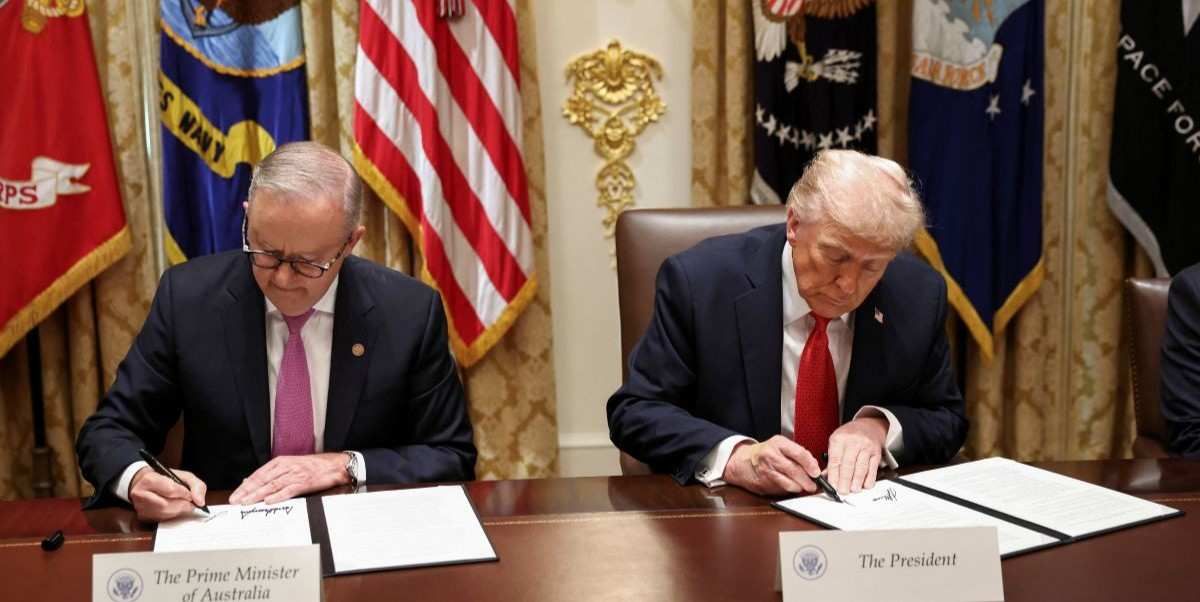US and Australia make deals to counter China
President Donald Trump and Australian Prime Minister Anthony Albanese announced new defense and economic agreements aimed at countering China’s influence in the Indo-Pacific during their meeting in Washington yesterday. The leaders unveiled an $8.5 billion rare-earth deal to boost US supplies after China placed export restrictions on Washington. Meanwhile, Trump reaffirmed strong US backing for AUKUS, pledging to move “full steam ahead” on helping Australia acquire nuclear-powered submarines. Canberra, meanwhile, has been expanding its military capabilities and signing defense pacts with Pacific Island nations to push back against Beijing’s regional dominance.
Azerbaijan-Armenia peace progress gets granular, literally.
For the first time since the waning days of the USSR, a Kazakh grain shipment has crossed Azerbaijan en route to Armenia. It’s OK if you didn’t just leap out of your chair with delirious joy. But remember: Armenia and Azerbaijan have been at war for most of the past 40 years, largely over Nagorno-Karabakh, an Armenian separatist enclave within Azerbaijan. Two years ago, the Azeris retook the area. Two months ago, the Trump Administration brokered a peace deal. Obstacles remain – the Azeris still want Armenia to scrap constitutional references to Nagorno-Karabakh. But the grain train suggests peace is slowly taking root, in a way that could transform the South Caucasus more broadly.
Aiming to keep the peace, US deploys Vance to Israel
US officials are increasingly concerned that Israeli Prime Minister Benjamin Netanyahu could end the ceasefire in Gaza, per a New York Times report. Seeking to firm up the deal, US Vice President JD Vance is in Israel today to meet with the country’s leaders, a rare foray to the Middle East for the man who has often focused on retaining the MAGA coalition rather than any specific policy areas. Meanwhile, US President Donald Trump again warned Hamas against violating the agreement. Further complicating matters, the threat of clashes with Hamas is making countries reluctant to send soldiers to Gaza to act as peacekeeping forces, a crucial part of the ceasefire deal signed last week.
